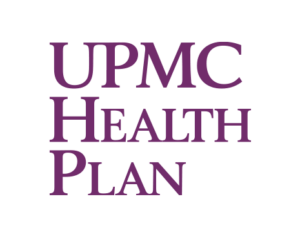By Lindsay Andrews
 Artificial intelligence (AI) is reshaping industries across the globe, but few sectors stand out as benefiting as profoundly as healthcare. At the forefront of this transformation and innovation is Reuben Daniel, AVP of AI at UPMC Health Plan.
Artificial intelligence (AI) is reshaping industries across the globe, but few sectors stand out as benefiting as profoundly as healthcare. At the forefront of this transformation and innovation is Reuben Daniel, AVP of AI at UPMC Health Plan.
“I fell in love with the world of AI about 10 years ago,” Reuben shares. “It’s driven incredible business value and opened up tremendous opportunities—especially in healthcare. But what excites me most is the potential to improve outcomes and make a meaningful impact on the community.”
Upon arriving in Pittsburgh, Reuben was struck by UPMC’s deep integration into the community. As one of the largest businesses in Pennsylvania, UPMC’s mission is closely tied to the well-being of the people it serves. That mission now includes a strategic and value-driven approach to AI integration.
Building a Smarter, More Connected Health System
UPMC has been working with AI for nearly 17 years, primarily on the health services side. Recognizing its potential early on, the organization also understood the importance of a coordinated, responsible approach. That’s where Reuben and his team come in—developing policies, guidelines, and tools to help ensure AI is deployed safely and effectively.
Today, UPMC Health Plan, the insurance services side, uses AI to advance one of its core missions: improving health outcomes. Whether it’s helping care managers identify members who may benefit from early outreach or enhancing the quality of care, AI is making a lasting impact across the employee-member spectrum.
“We use predictive models to identify individuals at risk of hospitalization or those who could benefit from care management,” Reuben explains. “These models, built on claims data and clinical insights, help us intervene earlier and more effectively.”
AI in Action: From Chatbots to Care Management
One of UPMC Health Plan’s most visible AI applications is its virtual assistant—a chatbot that provides members and providers with fast, accurate information. It’s become a cornerstone of UPMC Health Plan’s digital engagement strategy, helping to improve operational efficiency and member satisfaction.
Generative AI tools (think Microsoft Copilot) are also accelerating innovation. These technologies support decision-making, streamline workflows, and guide next steps through assistive features like chatbots and interactive voice response (IVR) systems.
“We’ve seen real improvements in how members get answers about their benefits and care options,” Reuben says. “They no longer need to wait for a live representative, which frees up our service teams and enhances the member experience.”
Governance, Ethics, and Evangelism
UPMC’s AI strategy is built on strong governance. Reuben works with leaders across the organization to create a governance structure that reports to the board, ensuring alignment with business goals and ethical standards.
“We bring together voices from across the company to look at AI through multiple lenses,” he says. “Implementation is key—we want to use AI to provide faster, better access to care.”
His team also conducts rigorous evaluations to help ensure each AI solution is safe, secure, and ethically sound. This includes working closely with legal, compliance, and data governance teams to protect member privacy and meet the highest standards of data protection.
Innovation at UPMC Health Plan is not confined to a lab—it’s woven into the culture. Reuben’s team hosts AI brainstorming sessions and fosters grassroots evangelism to build a community of AI enthusiasts who know their voices are being heard.
“AI evangelism is crucial,” Reuben emphasizes. “It’s not just about implementing technology—it’s about inspiring our workforce to embrace AI as a transformative tool.”
Collaborating for Progress
Reuben also sees a vital role for the business community and public policy in supporting AI adoption. He advocates for upskilling programs, public-private relationships, and thoughtful policies that help organizations deploy AI ethically and effectively.
“By working with educational institutions, offering employee training, and creating incentives for responsible AI use, we can prepare the workforce for the future,” he says. “Forums and workshops can help leaders share best practices and collaborate on AI initiatives.”
As AI continues to evolve, UPMC is leading the way—building capabilities, deploying resources strategically, and creating value across the organization. With Reuben Daniel at the helm, the future of healthcare in Pennsylvania looks smarter, more connected, and more compassionate than ever.
Lindsay Andrews is director of member communications for the PA Chamber.